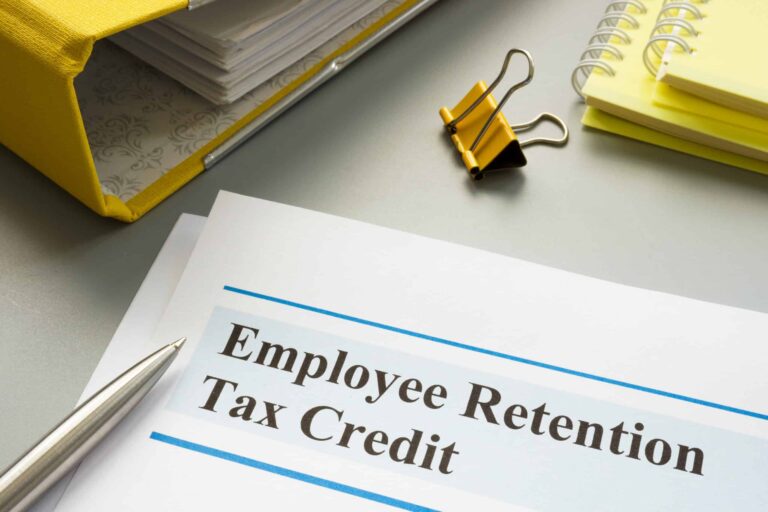With so many Employee Retention Credit (ERC) companies in the market, many CPAs are left out of the conversations of ERC eligibility and computation. Nonetheless, that doesn’t remove CPAs from the ERC equation. Clients will ultimately circle back with their trusted CPA to complete the process by filing an amended income tax return for the amount of ERC received. Unfortunately for CPAs, it’s not as easy as simply reducing the Salaries and Wages deduction and filing the amended return. A recent article from the American Institute of Certified Public Accountants (AICPA) addresses a CPA’s professional responsibility to take a full look at ERC before filing that amended return.
The ERC is a hot topic for many employers and will continue to be until 2025 – the deadline to file for 2021 ERC claims. This credit provides employers up to $5,000 credit per employee for 2020 and up to $7,000 credit per employee per quarter for the first three quarters of 2021.
IRS Warnings about ERTC
With the potentially substantial amount of cash refunds available to businesses for ERC claims, many third-party companies have jumped in the market soliciting ERC services. Regrettably, not all of these ERC claims are legitimate and could put your client in hot water with the Internal Revenue Service (IRS). In IR-2022-183, the IRS issued a warning to employers regarding some third-party companies taking improper positions on ERC eligibility and computation of the credit. If a business finds itself in the hands of one of these questionable third-party companies, the CPA preparing the amended employment tax return or corresponding amended income tax return has a responsibility to review the ERC computation from the third party before filing the amended returns. If not, the CPA could face a future professional liability claim if the IRS later determines the business was not eligible for the credit.
Even though the CPA did not prepare the ERC computation, the CPA is still required to abide by professional standards and maintain documentation to demonstrate compliance. U.S. Treasury Circular 230 10.34(d) does allow tax practitioners to rely on information provided by clients in good faith and without verification; however, a practitioner cannot ignore what may appear to be incorrect, inconsistent or incomplete. If a client requests amended return services for ERC computations prepared by a third party, a CPA should ask follow-up questions of the client and evaluate the information in accordance with professional standards.
- SSTS No. 1, Tax Return Positions, states that a CPA should not recommend a tax return position or prepare or sign a tax return taking a position unless the CPA has a good-faith belief that the position has at least a realistic possibility of being sustained administratively or judicially on its merits if challenged.
- SSTS No. 1 also states that a CPA may recommend a tax return position if the member (i) concludes that there is a reasonable basis for the position and (ii) advises the taxpayer to appropriately disclose that position.
Based on the standards, a CPA should determine if professional standards permit the preparation of the amended tax return using third-party ERC computations and factual circumstances of the business operations in connection with the specific government order (if applicable).
If an analysis determines there is a less than realistic possibility that ERC would be upheld, the CPA must take action, including making certain income tax disclosures for a reasonable basis determination or informing the client that they are unable to prepare the return if there is no reasonable basis for ERC. Payroll tax returns should only be prepared if there is a realistic (less than 33 percent) possibility of ERC being upheld.
CPAs should also inform their clients of the risks associated with ERC computations prepared by third parties, including the following:
- Despite receiving the ERC refund, the IRS may later examine the employment tax return and disallow the credit, resulting in payroll taxes, interest and penalties owed to the IRS.
- If ERC is disallowed in 2024 or 2025 by way of an examination, the statute of limitations to amend the 2020 or 2021 income tax return back to the full Salaries and Wages deduction may have passed, resulting in lost deduction and overpayment of federal income tax.
- Fees paid to third-party companies may not be refundable, even after IRS disallows the ERC claim.
CPAs preparing audits and review services should also evaluate ERC claims to avoid possible accounting misstatements and non-compliance. Despite a CPA’s involvement in the determination and computation of an ERC claim, they should consider the professional standards when determining whether to engage in the preparation of a tax return with ERC impact.
Windham Brannon’s team of professionals is well-versed in the ERC and can help you remain compliant when preparing and submitting your claim. For more information, reach out to your Windham Brannon advisor, or contact Tomika Bullet.



